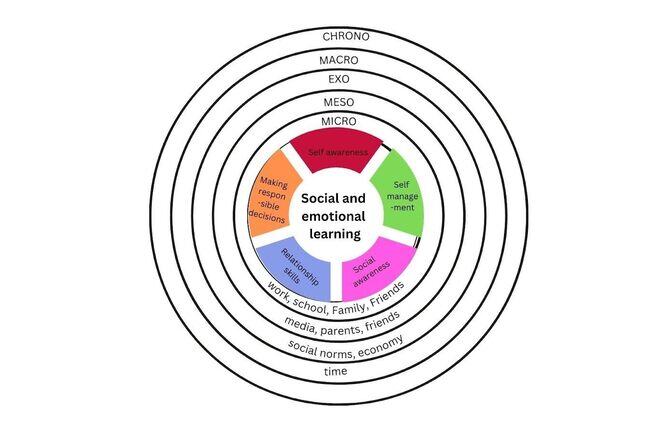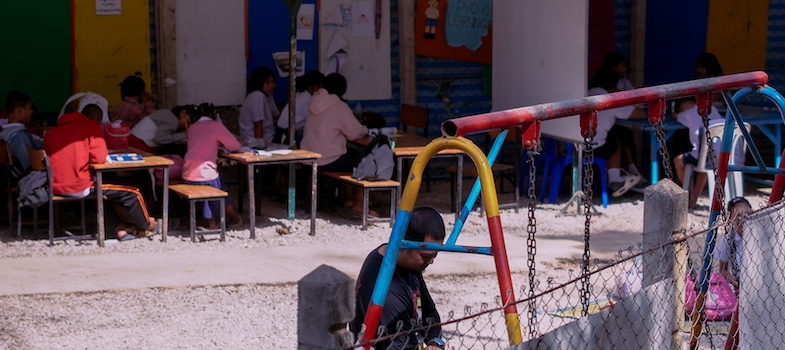3.2 Understanding social and emotional learning (SEL)

Social Emotional Learning (SEL) is a pedagogical approach that has been effectively used by many teachers working in conflict and crisis settings. SEL aims to foster social and emotional skills, or ‘soft skills’, in children and young people. These are the skills that all individuals (including adults) need so that they can relate to others and live happily within a community and society.
When teachers relate to students using a SEL approach, it helps students’ social and emotional wellbeing, as they may have had traumatic experiences due to violence and displacement in their lives. SEL can enable children and young people to develop knowledge, attitudes and strategies to help them understand and manage their emotions. It can also help them in feeling and showing empathy for others, building and maintaining positive relationships, making informed decisions, and setting and achieving positive goals.
A focus on SEL can help all learners. It is particularly important in contexts of conflict and displacement because children and young people are often exposed to situations and experiences which are difficult for them to understand. Creating time and space within learning environments to promote young people’s social and emotional learning can benefit their learning and wellbeing in many ways.
SEL core competencies can be applied in the classroom, at home, and in learners’ communities. Scholars who research and promote SEL in education suggest that the following five competencies are core:
- Self-awareness involves learners learning to recognise their emotions and the ways in which their their emotions affect their actions. It helps them to reflect on their strengths and weaknesses and enables them to make informed decisions in life.
- Self-management enables learners to take control and ownership of their thoughts, emotions and actions and helps them set and work towards their goals.
- Social awareness involves developing the ability to understand others with empathy and to act ethically, both at school and in social environments.
- Relationship skills involve building and maintaining healthy relationships with people from diverse backgrounds by practising effective listening, clear communication, peaceful conflict resolution, and recognising when to ask for or offer help.
- Making responsible decisions means learners are able to behave or react ethically and safely, to assess potential consequences and to consider everyone’s wellbeing, including their own.
If you would like more guidance on using SEL in your teaching, the International Rescue Committee has produced a free Social-Emotional Learning (SEL) Lesson Plan Bank and a Social-Emotional Learning (SEL) Games Bank for educators working in contexts of conflict and disaster. You can also find these resources in the downloads section at the end of this step.
Over to you
Please share in the forum below:
- What strategies, if any, have you tried using to help your learners develop the five core competencies of Social Emotional Learning? What successes and challenges have you had with these strategies?
- Do you think you could use any of the lesson plans or SEL games from the International Rescue Committee resources in your teaching? If so, which ones, and why do you think they would work in your context?
© UCL and the Inclusive Education Foundation (CoMOOCs Team), CC BY 4.0
